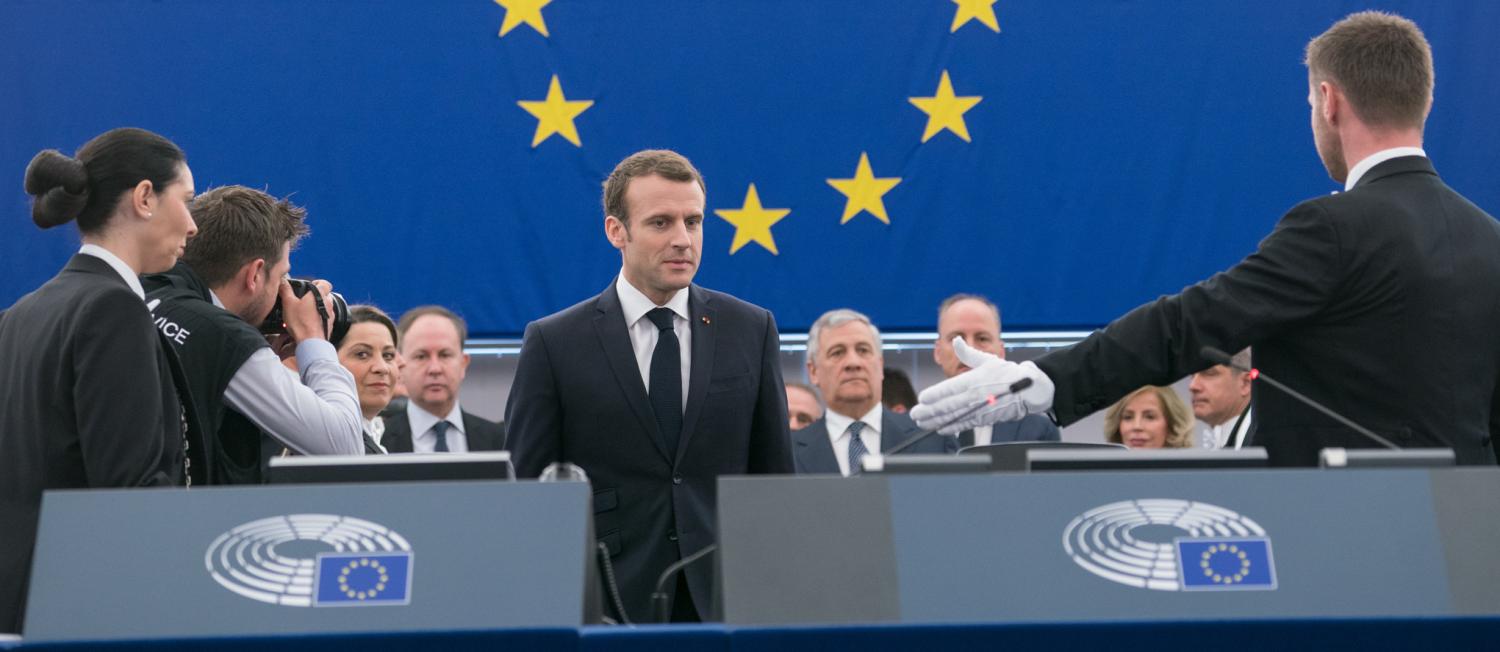The way in which the European Union and its member states responded to recent strikes by the US, France, and the UK on Syrian chemical weapons targets very clearly exposes the strengths and weaknesses of European power.
One or two Europeans are movers, but most are shakers.
When it came down to taking action, the US turned to the UK and France. Some in Europe have tried to explain this as joint action only by the three like-minded members of the UN Security Council. But it goes much deeper than that.
The fact is that Europe was deeply divided, including domestically, about whether or not to support the strikes. This disarray when it comes to exercising power and defending the principles underlying the West is deeply troubling. And it is being exploited and fostered by countries such as Russia, which have a clear interest in keeping Europe divided.
Beyond France and the UK (which, of course, won’t be an EU member for much longer), reactions have been very weak and fragile indeed. Some Europeans – Austria, Hungary, Cyprus, Malta, Sweden, Finland, and the like – have expressed misgivings about (or downright opposition to) the joint missile attacks. Most of them argue that military action only makes the situation worse, and instead support revitalising the UN-sponsored Geneva talks among the Syrian parties.
While this is all fairly predictable, it’s the very ambivalent reaction at a European level and from key EU member states that has been most disappointing. The EU High Representative for Foreign Affairs and Security Policy, Federica Mogherini, set the tone by commenting that the European Union “understood” the need for the strikes, while calling for more peace talks. This is about as neutral as she could’ve been, given the horror of the chemical weapons attacks.
A subsequent meeting of EU foreign ministers said much the same thing, adding that they hoped a conference on Syria called for next week might pressure the Assad regime and its allies to “put an end to the suffering and the dying of so many Syrians”. And they, of course, stood ready to provide non-military (including diplomatic) support to any peace settlement. Bold action indeed.
Individual EU leaders have been similarly weak. Take Germany, for example. While strongly condemning the use of chemical weapons, even before the US/French/UK strikes, Chancellor Angela Merkel ruled out, not once but twice, any German involvement in punitive action against Syria. Germany’s military, she said, “will not participate in possible military actions”, while emphasising that there was a need to “send a clear signal that the use of chemical weapons is unacceptable”.
Merkel’s response to the attack came a few days later and was almost identical to the broader EU reaction. She described the joint air strikes in minimalist terms as “necessary and appropriate” – hardly robust support for key allies, including the US. German Foreign Minister Heiko Maas also emphasised the importance of re-energising Syrian peace talks.
German commentators have been very critical of the German Government’s reaction, one describing it as blass (pale). Some have also contrasted Germany’s reticence with France’s willingness to lead on security issues of great importance to Europe (not only Syria, but also the large asylum-seeker flows into Europe, for example).
Interestingly, opposition parties in Germany have been strongly against the joint action against Syria. These have included the far-right, nationalist/populist Alternative for Germany (AfD), no doubt emphasising its close links with Russia. Other similar parties elsewhere in Europe (in Hungary, for example) have also tended to give weight to Russia’s position on Syria.
German commentators have not been alone in their criticism. The most-read newspaper in Germany, Bild, quoted the nominated US Ambassador, Richard Grenell, as saying that “Germany should have joined this [US/French/UK] alliance”.
US President Donald Trump has been urging European members of NATO and the EU to take on more of the responsibility of dealing with major international security problems, including the use of chemical weapons in Syria. He has repeatedly called for increases in defence spending to meet NATO targets. Trump has also been deeply critical on other issues, such as trade policy.
The EU response – and that of its members – to the joint strikes in Syria will have done little to persuade Trump that these calls are being taken seriously. It will reinforce the President’s apparent view that France and the UK are the most dependable partners for the US in the EU, leaving only France after Brexit.
French President Emmanuel Macron is doing all he can to demonstrate that France is a mover, not a shaker. Apart from France’s involvement in the Syria actions, he made a very important speech this week to the European parliament setting out a clear vision for Europe and the case for Europe to be much more active in defending Western values, including democracy.
Germany also needs to lead on such issues, commensurate with its economic and strategic weight in Europe and globally. We all understand the difficulties it has faced in forming a new government, and the limits on the use of its power Germany feels as a result of its history. But it is vital that Germany becomes a mover again.
Prime Minister Malcolm Turnbull’s meetings this week and next in Europe will enable him not only to pursue Australia’s interests but also to make an assessment, on the ground, of the strengths, weaknesses, priorities, and preoccupations of key European countries and their leaders. It will also give him an insight into the huge challenges facing Europe and the West. It is very timely.

